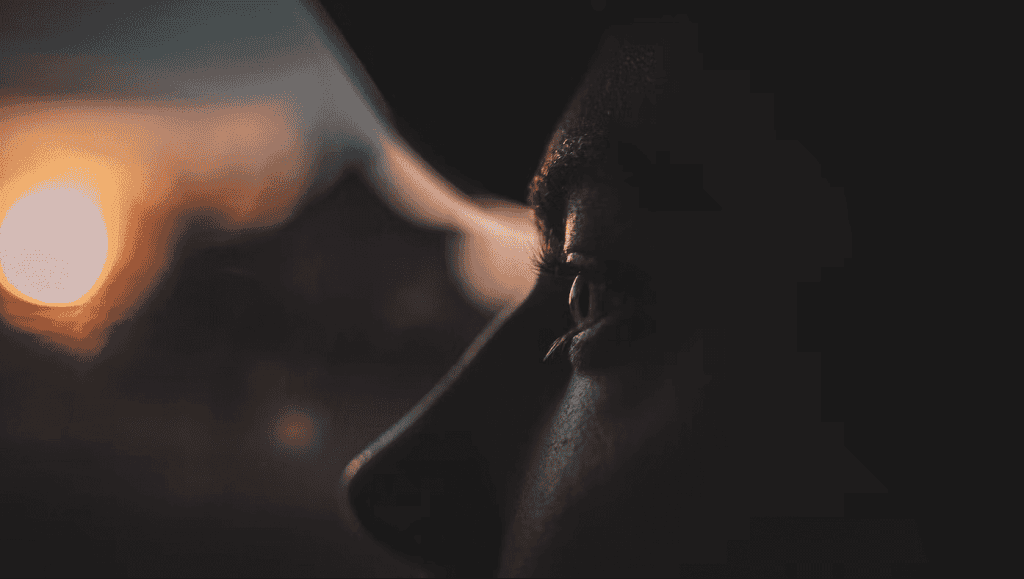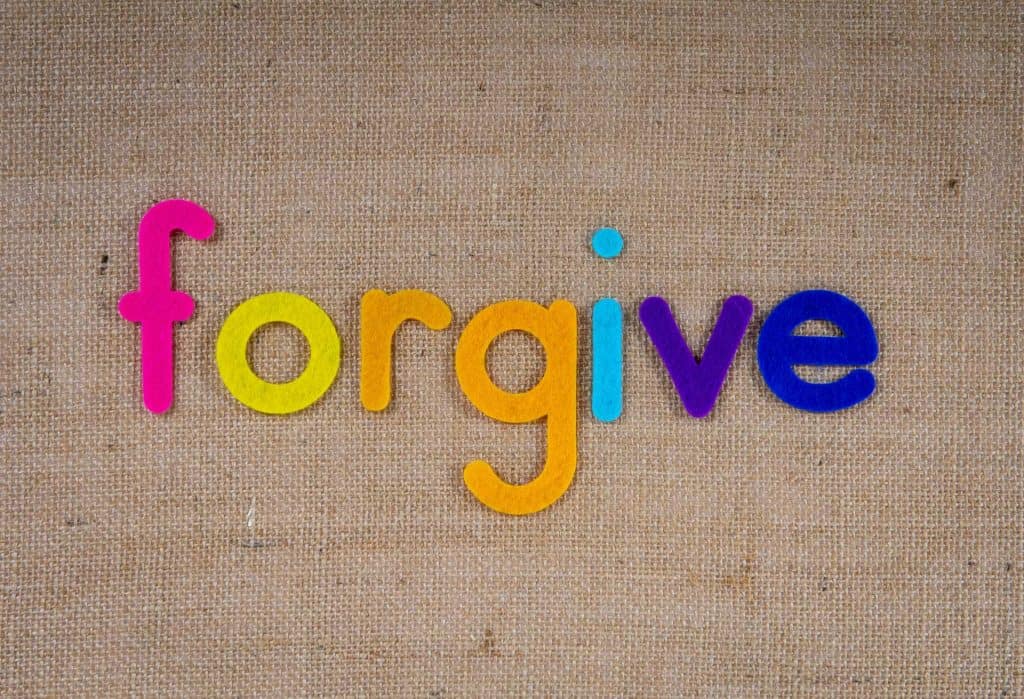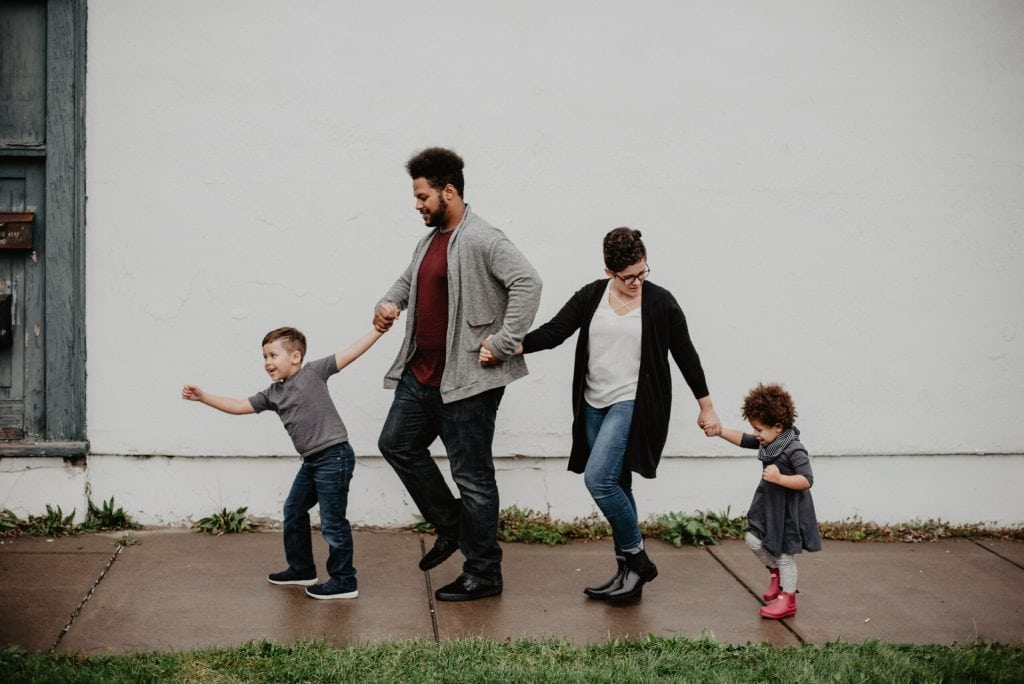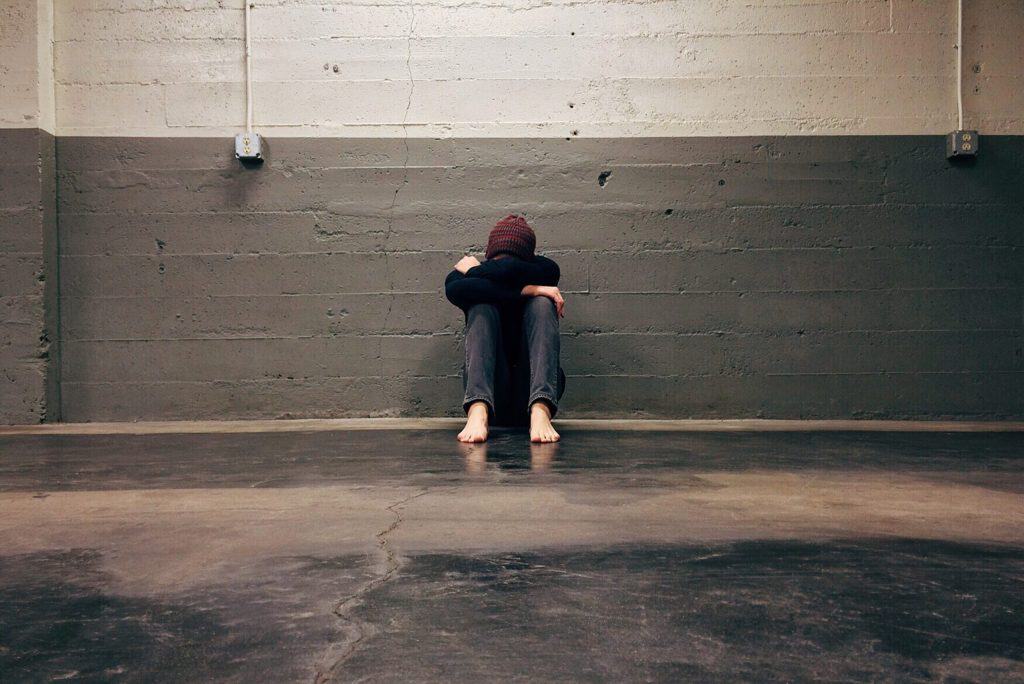My daughter was the only one without goggles.
It was the first day of swim lessons, and, out of the group of children, she was the only one missing this essential piece of gear. We actually own goggles, but we hadn’t been able to find them before we left. My thoughts spiraled.
“I should have been better prepared.”
“I should have started looking sooner.”
“I should have stopped and bought new ones on the way here.”
“I wonder if anyone else notices we’re the only ones without goggles.”
“I wonder if the teacher is annoyed with me.”
Then I started berating myself even beyond the problem of having no goggles.
“I should teach my daughter more responsibility with her belongings.”
“Our house is always messy. It’s no wonder we can’t find them. I just can’t keep up.”
I’ll stop there. I trust you get the gist. As I was sharing what happened with another mom later that day, I summed it up simply: “We couldn’t find her goggles. And I had mom guilt.”
Mom guilt. Moms today are well acquainted with the term. We use it as a kind of shorthand to express an all-too-common feeling we face in the everyday events of mothering.
I’ve been thinking and reading a lot about mom guilt in preparation for my lecture at CCEF’s national conference this October. There are several insights I’ve gained that help me unpack what was happening inside of me that day at the pool. For example, if I examine the thoughts that I shared above, I can see my fear of what others will think of me. I see that I was self-focused, and not thinking about the impact not having goggles would have on my daughter. I see ways I unhelpfully generalized and overstated what happened and what it indicates.
But for today, let’s focus on just one question: If moms use “mom guilt” as shorthand, what is it shorthand for? It seems it is used as a substitute for something that feels harder to say, harder to admit, and harder to deal with. It’s easier to say, “I had mom guilt” than to say “I felt like a failure as a mom.”
And this is what I am learning: Mom guilt sees only failure. But God? He sees me completely.
Let me explain.
If you are prone to mom guilt, then know that you are also prone to see your failures instinctively. Sadly, it’s probably what you will see first in a situation that’s happening with your kids. And what I’ve noticed in myself, in my friends, and in moms I counsel is that those who struggle with mom guilt are really hard on themselves. It’s not only because we see failure first and easily—but also because that’s usually all we can see. In most instances, there is more to see than just failure, but we are not skilled at seeing it. And if that is the case, then we want to grow in seeing more than just our failures (which, by the way, are often perceived failures, not actual failures!). And one way to grow in seeing more than our failures is by believing, finding comfort in, and delighting in the fact that God sees us.
Moms, God sees you.
One of the names for God is El Roi, which means You-Are-the-God-Who-Sees. Interestingly, we hear this name for God after he helps a mom in distress. In Genesis 16, Hagar is pregnant and has been cast out from her home. She is despised, dealt with harshly, and flees to the wilderness. But God sees her in her need and in response to his help and loving care, she says, “I have seen him who sees me” and gives him the name You-Are-the-God-Who-Sees.
Hagar saw him who saw her—and being seen by El Roi is a good thing. And if being seen by El Roi is good, then that gives us something to aim for when we feel mom guilt. We’re aiming to see him who sees us, and to see what El Roi sees. With mom guilt, we turn inward. We self-flagellate. Self-obsess. And as we do, we see failure. But there is more to see—and when we are stuck, God’s comfort comes when he helps us see more.
So when El Roi saw me that day at the pool, what did he see? He saw more than what I could see.
He saw a mom who signed her kids up for swim lessons so they could be safe and confident in the water.
He saw a mom who successfully juggled the schedule that day—navigating her work schedule with swim lessons.
He saw a mom who arrived on time—no small feat!
He saw a mom who covered her kids in sunscreen to protect their skin, even as they wiggled away from her—a victory!
He saw more than a mom who failed to show up with goggles.
He saw me.
And yes, he saw a mom who struggles to keep a tidy house. A mom who could stand to get an organizational system going at home to keep swim gear in one place. A mom who must persevere in teaching her kids responsibility for their belongings.
He saw me completely.
And so I am working on remembering that when I am caught up in mom guilt, I need to be found under the gaze of another. I need to see more than myself, and more than my failure. I need to see him who sees me. I need to see him who is a kind, loving Father. I was comforted that day only after I saw him who saw me. His gaze found me in my mom guilt. Just as his gaze found Hagar. Just as his gaze finds you.
Moms, you are under the gaze of a loving, kind Father. When you are struggling with mom guilt, will you practice with me what it means to be found under his gaze, to see him who sees you, to see more than just failures, to see yourself more like how he sees you?
This blog post is a publication of the Christian Counseling & Educational Foundation (CCEF). All content is protected by copyright and may not be reproduced in any manner without written permission from CCEF. For more information on classes, materials, speaking events, distance education and other services, please visit www.ccef.org.
















